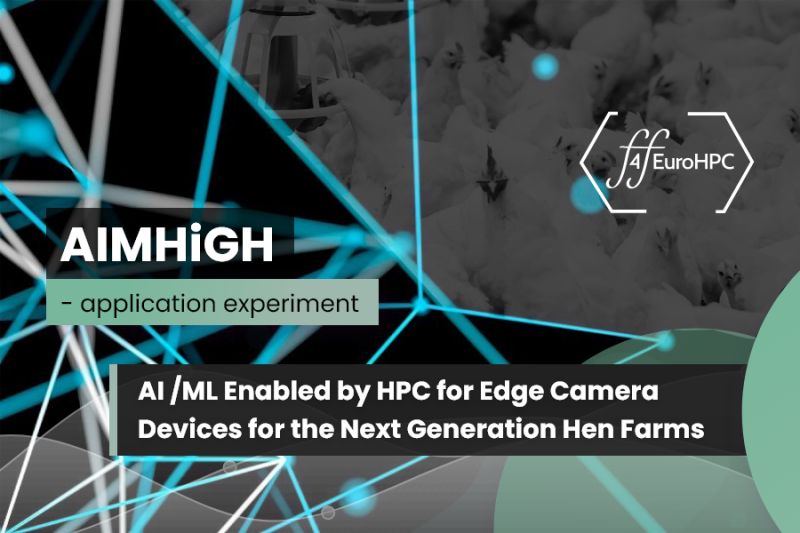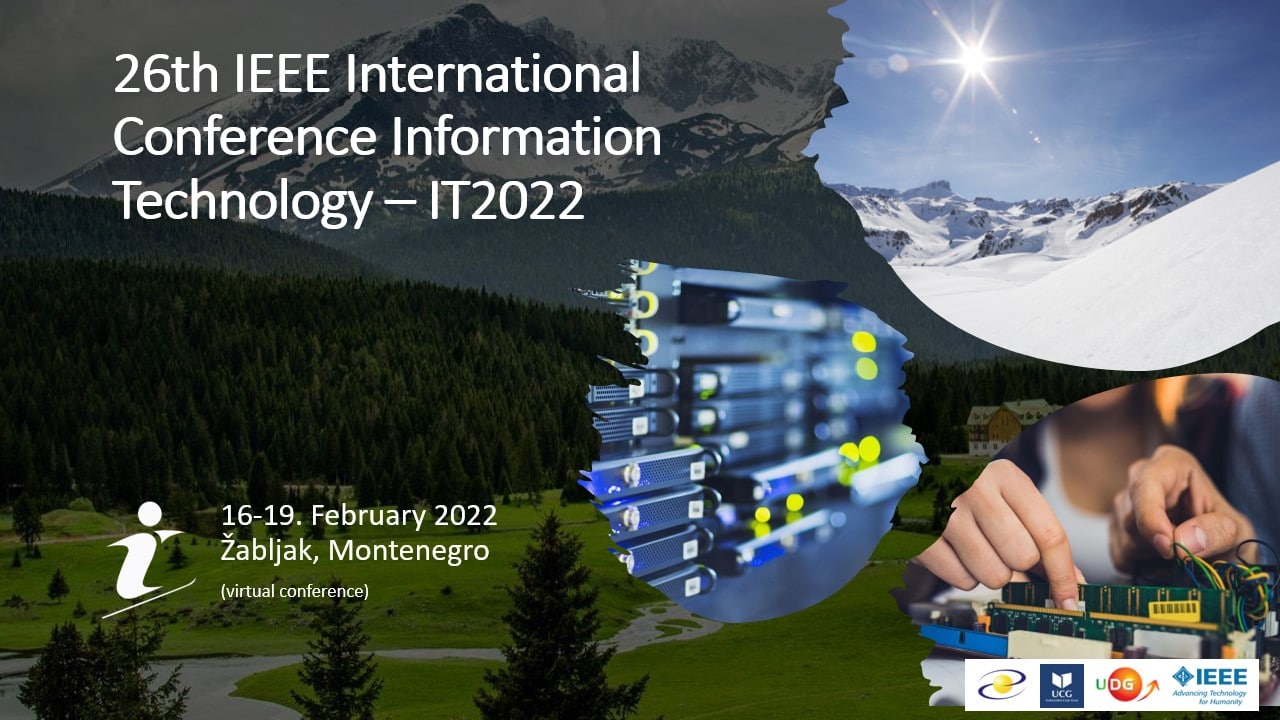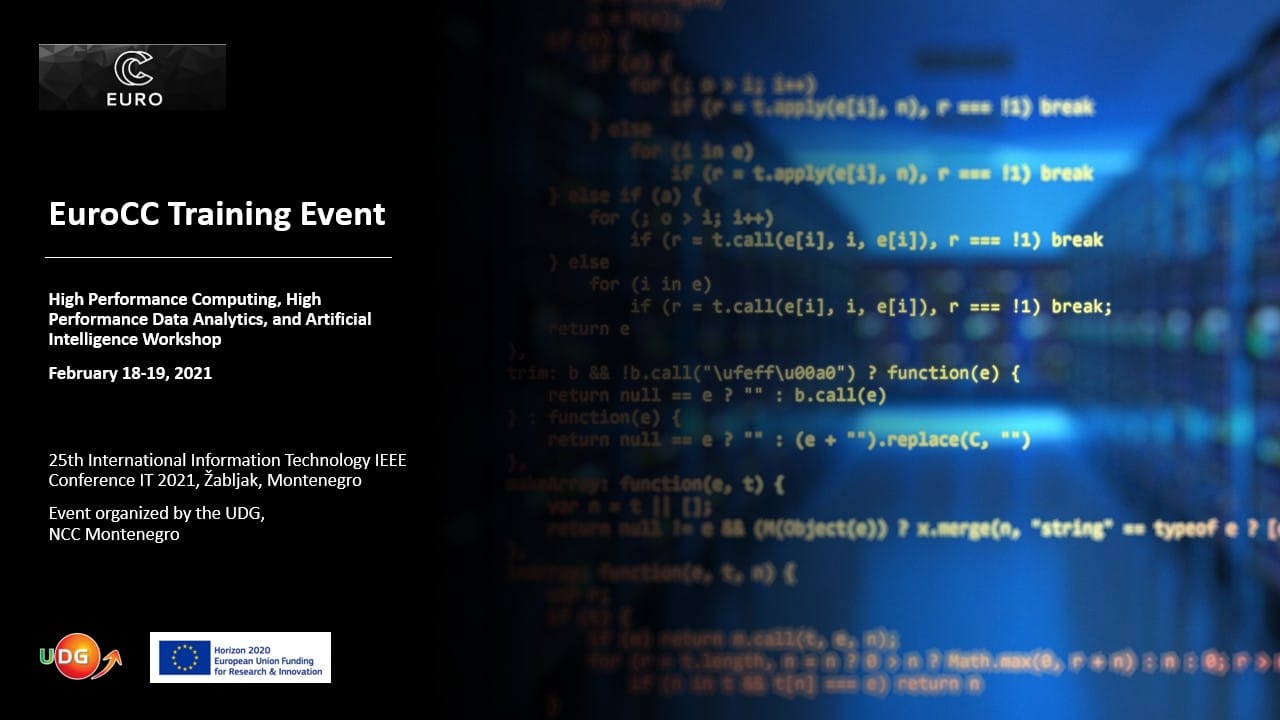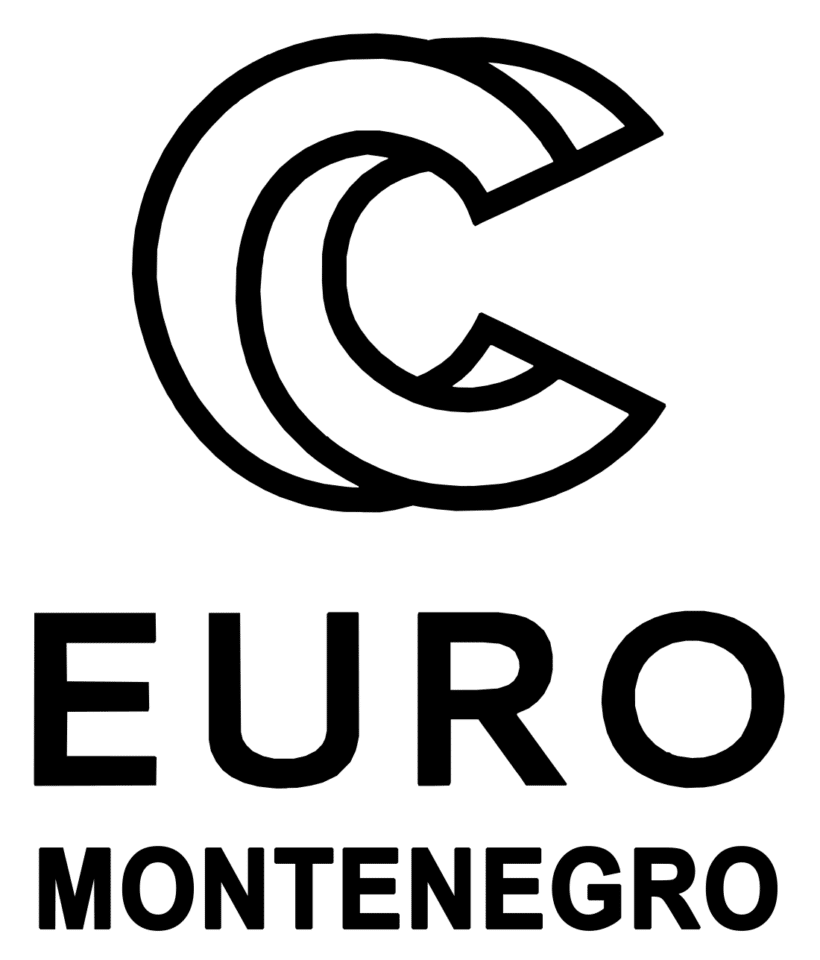
NCC Montenegro is implemented at the University of Donja Gorica in the context of the EuroCC project realized under the Horizon 2020 (H2020) through EuroHPC Joint Undertaking [JU]. Within the EuroCC project, UDG established a single National Competence Centre (NCC) in the area of high-performance computing (HPC). The NCC is coordinating activities in all HPC-related fields at the national level and serve as a contact point from customers from industry, science, HPC experts, and the general public alike.
More information on NCC Montenegro can be found on the website https://eurocc.udg.edu.me/.
Target Picture of NCC of Montenegro

EDUCATION & TRAININGS
- Creating a new generation of HPC+ experts with academic references and professional credentials, to serve HP/AI needs of industry, academia and public sector, through academic programs, study courses and professional trainings.
RESEARCH & INNOVATIONS
- Enabling HPC/HPDA/AI research agenda, supporting innovations and interactions between science, private and public sector.
- Acting as a knowledge & hub, repository of competencies and resource pool for multidisciplinary HPC/AI research.
COMMERCIALISATION
- Providing services, activities and access related to HPC computational resources, SW codes, simulations’ algorithms, application experiments, PoCs, as well as project consultancy, business development and user support.
Trainings and skills development
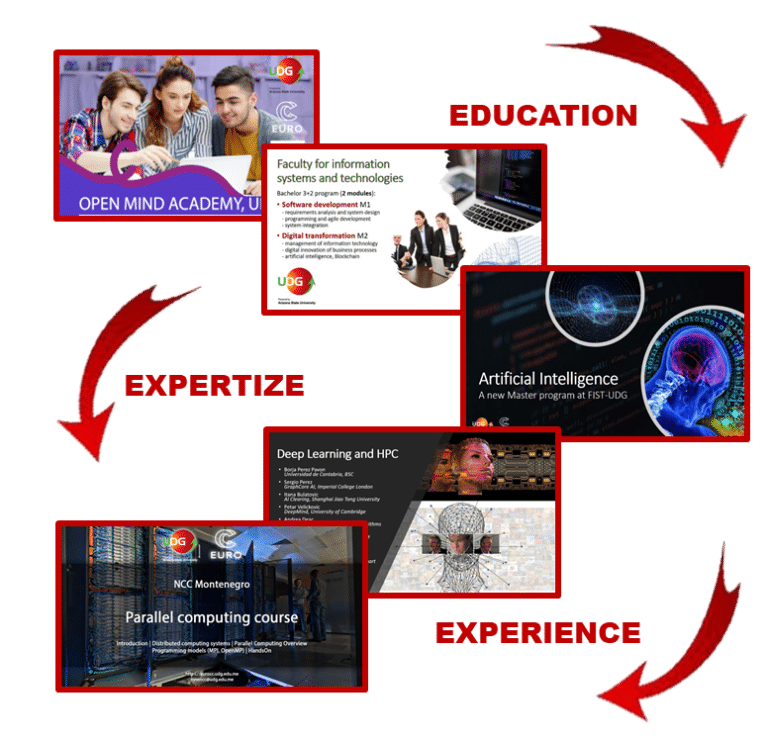
HPC/HPDA/AI skills development follows successfully established learning pathway:
- HPC/AI-related seasonal schools to motivate and mobilize high-school students and young high-tech enthusiasts to get interested and enrol in HPC/AI-related academic programs.
- BSc, MSc and PhD programs and courses to (re)produce HPC/AI specialized and future-proof labour force.
- Professional training courses for industry participants/practitioners to provide HPC/AI know-how, supercomputing hands-on experience and LLL for HPC/AI carrier development.
- Training events & workshops addressing different types of high-tech events, HPC/AI domains, maturity levels and user groups.
and its further development with comprehensive approach:
- raising awareness of national training portfolio;
- pursuing cross-NCCs training collaboration;
- addressing gaps in training needs,
- associating trainings with key conferences and networking events
Services to end interaction with industry
SMEs/industry interaction follows the funnelling approach from wide industry outreach and HPC’s benefits related mass communication, over business communities’ engagement, to targeted 1-2-1 meetings with HPC-prospective companies.
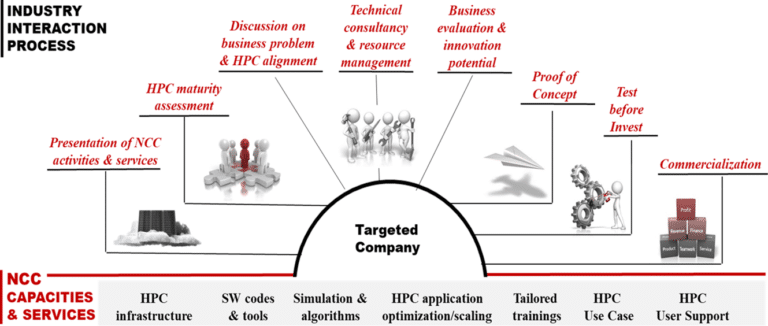
Detecting HPC/HPDA/AI industry potential and opportunities in various domains: ICT, smart farming, weather modelling, bioinformatics, e-commerce, fintech, digital healthcare, construction and engineering, creative industries etc.
Services to end interaction with academia and public administration
Interaction with academia:
- Further development and introduction of HPC/HPDA/AI-related courses and disciplines in study programs (BSc, MSc and PhD level)
- Promoting HPC+ for academic excellence, applied research, and collaborative projects
- Attracting researchers and experts, facilitating the acquisition of HPC+ knowledge and skills, to support multiple domains in the scientific use of HPC/AI resources and enable research-facilitated innovations and technology transfers.
Interaction with the public sector – Mapping supercomputing opportunities related to key public projects, Governmental and Digital agenda.
- Alignment approach – activities related to digital transformation and modernization of the public sector with focus on e-services and agile solutions.
- Proactive approach in supporting proven HPC/HPDA/AI solutions for public sectors (i.e. smart cities, critical infrastructure protection, cybersecurity, crisis management, urgent computing)
- Productive relations with key stakeholders, public authorities and institutions.
Service portfolio
NCC Montenegro is creating and upgrading its service portfolio by integrating expertise and experience from training activities and interaction with user groups: industry (serving compute-intensive and domain-specific businesses), academia (supporting scientific excellence and research-driven innovations) and public sector (aligning on the Government’s digital agenda and prioritized sectors and projects).

Collaboration
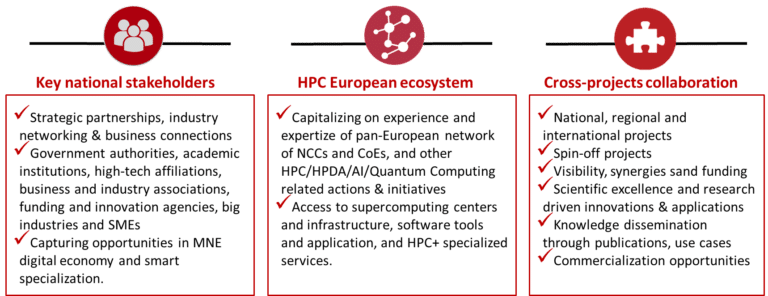
More information can be found on our national website : https://eurocc.udg.edu.me/

